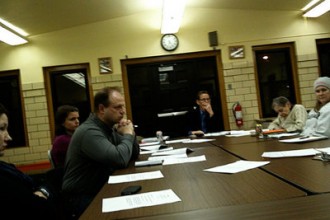When Wauwatosa kids start school next fall, some of them might be the inaugural students in the district’s first public Montessori program.
Montessori programs are built upon the methods and philosophies of Dr. Maria Montessori, who believed that children learn best when self-directed and freed to follow the natural tendency to work.
Wauwatosa School District has plans to launch the school in the lower level of the Fisher Building, 12121 W. North Ave., which also houses the district offices and Tosa’s School of the Trades.
Although Wauwatosa doesn’t currently have a public Montessori school, there are private programs, including ones at Milwaukee Montessori School and Children’s Workshop.
Jenny Keats, principal at the district’s Underwood Elementary School, has been key in Tosa’s two other recent school launches — Tosa School of Health Science & Technology opened at Wilson School three years ago and the new Tosa School of the Trades — and was tapped by superintendent Dr. Phil Ertl to be the functioning administrator of the Montessori school.
It is unclear whether or not she will continue on in that role once the school opens.
Keats says that the idea for the Montessori program has been in the works for a few years now.
“Shortly after the plans for the first charter school were underway, community members approached Dr. Ertl, with the idea to have a Montessori school as part of our public school district,” says Keats. “We have had help from Michele Butz, a retired Montessori director who is now a consultant.”
Butz has worked with a number of public Montessori programs in Milwaukee Public Schools.
Keats says that the “tentative” plan is to open the new school for the 2011-12 school year, but that much still depends on the outcome of Tosa’s February enrollment and a weighted lottery that would give preference to children with previous Montessori experience.
Depending on the public response, the school could open with a single primary classroom (K4-K5) or up to three classrooms for kids ages 4 through 11.
In Montessori schools, multi-age classrooms are standard — as is inclusion of 3-year-olds, and some — including Butz — have urged the district to consider including them in the program. Roughly 18 to 25 students are required to launch the school.
“Until we are able to get people to quite literally commit,” Keats says, “we can’t go any further.”
The proposal is expected to go before the school board for a vote on Jan. 24. A full presentation will be made to the board at the Jan. 10 meeting.
Positive response to a survey the district conducted among city residents about interest in the potential Montessori program and word of mouth support have led the district to believe the school will have the enrollment numbers required open.
Keats told the school board at a presentation this week that 89 survey respondents with previous Montessori experience would consider a public Montessori program in the district in grades one through five. Additionally, 26 respondents who identify themselves as “Montessori parents” were interested in the program, which would seek teachers with Association Montessori International (AMI) certification.
“We want to provide educational options to our residents,” Keats told the board that evening.
“While it’s great when you have the momentum and the enthusiasm as you move forward,” she says, “it’s also very important to be able to step back and implement things appropriately and anticipate some areas that might be a little bit more involved or present some challenges.”
However, Keats believes that all of the advance work — and especially the participation of Butz — will pay off for the new school.
“It’s always about balance,” she says. “I know with moving forward with the charter school, because it was all new territory, it was difficult to read are we going too fast are we not going too fast. This time I feel that particularly with Michelle’s involvement, we’re getting a lot of work done up front in terms of preparation and planning.”
At this week’s board meeting, superintendent Ertl noted that a public Montessori could be a source of new revenue for the district.
“I think the survey results supported what we were believing all along, that this can be done and can financially benefit the district. … It would be a revenue-producing school.”
That means, the program could attract new families to the district, bringing funding along with them.
We spoke to one Wauwatosa family that currently has a child enrolled at Milwaukee Montessori School — and is awaiting the birth of a second child — that is watching developments closely.
“MMS is a great school and they have their act together,” says dad, Brian Wooldridge, “but, yes, I would consider switching to a Tosa Montessori if the staff was good. I pay my share of taxes and I pay for MMS, so saving some money on tuition would be nice. Having two kids will even make it more appealing if it happens.”
He says that more than simply finances, a commitment to public education would also affect their decision.
“I am committed to public education,” Wooldridge says. “We think the Tosa school system is one of high quality and we fully expect (our child) to join at some point. We went to MMS (because) as far as I know there are no programs for 3-year-old kids in public schools. So our choice was day care with minimal academic support, or the Montessori 3-6-year-old program.”
Wooldridge says that he has spoken to other Tosa parents who are also very interested in the Montessori program and at a recent holiday party in the city, I overheard parents discussing the subject on a couple occasions.
One of them, John Biemann — a Tosa resident who was in attendance at the board meeting and who currently has a child enrolled at Children’s Workshop — noted that he had more questions than answers after the evening’s presentation and discussion and is considering waiting a year to see how the program looks once it’s going.
“I don’t know if I want to be the first in the pool,” he says. “I’d like them to work the kinks out.”
Keats expects some trepidation and it clearly doesn’t affect her enthusiasm for the Montessori proposal.
“I’m very excited,” says Keats. “I’m hoping that this is something that even the people who feel a little bit doubtful about branching out and doing these things realize that we’re in a time in American education where we’ve got to start acknowledging that we need to provide more opportunities for children and their families and as much as we can do, the stronger we are in terms of our educational system.”

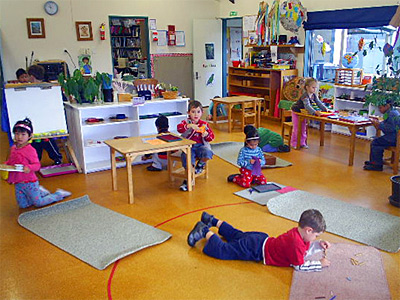
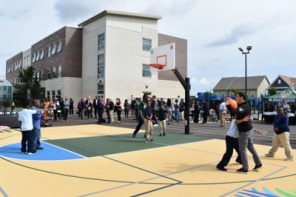 i evaluate to yes even if there's no image
i evaluate to yes even if there's no image  i evaluate to yes even if there's no image
i evaluate to yes even if there's no image 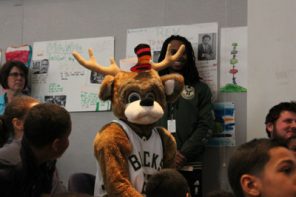 i evaluate to yes even if there's no image
i evaluate to yes even if there's no image 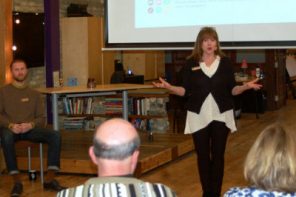 i evaluate to yes even if there's no image
i evaluate to yes even if there's no image 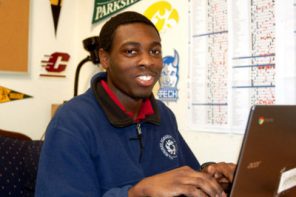 i evaluate to yes even if there's no image
i evaluate to yes even if there's no image 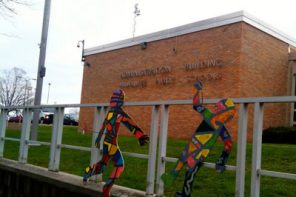 i evaluate to yes even if there's no image
i evaluate to yes even if there's no image 